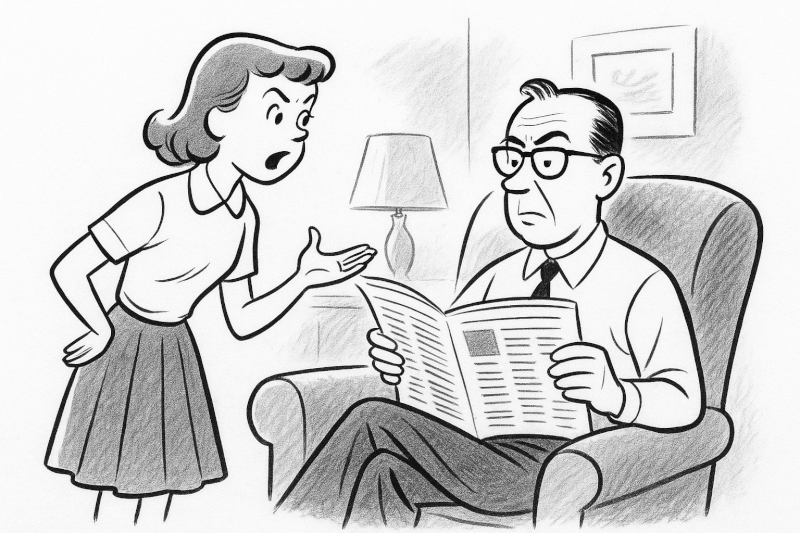As a teen, I couldn’t seem to get on the same wavelength as my dad. He was an engineer and a manager of men; I was an emotional girl, prone to feeling too much and given to writing poetry to express that excess of emotion. The gulf between us seemed to widen every day, and I imagine it confused us both. He didn’t seem to care at all about how I was feeling, instead choosing to ask about my car. “You keeping an eye on the oil level?” He’d ask without taking his eyes off his paper. When I’d invariably answer no, he’d lob me an easy one: “How’s the car running?” “Fine,” I’d say, disinterested. As long as it went from point A to point B, I didn’t much care about the car one way or another. I cared about music, my grades, friends, the prom … pretty much anything other than the old, rusted heap of metal in the driveway. We couldn’t seem to connect, and we ended up frustrated with each other more often than not.
Of course today I look back and realize that the questions weren’t really about the car at all. Reaching out was just that: an attempt to connect, even if it often failed. My dad didn’t understand the inner emotional life (or, let’s be honest, the outer one) of a teenage girl, and who could blame him? After raising five kids of my own, I am finally prepared to give him some leniency. It’s harder than it seems to know what to say to friends or family sometimes, even ones we feel we should know best. My dad was trying to establish communication about something, anything—even if, to me, at the time—it created more confusion than it alleviated. The important thing was that he tried, and he kept trying, even in the face of my somewhat stark rejection.
Many times, in the face of such a rejection or in the wake of confusion that follows such miscommunication, we tend to give up trying to connect. It’s normal to want to avoid feelings of frustration, discomfort or even anger. When a friend or loved one seems to be drifting farther away and communicating becomes a burden, it is often easier to let them go as opposed to actively fighting to decode what’s going on. Not every relationship is worth the time; acquaintances, for instance, don’t merit this type of investment from us. But very close ties deserve our care and attention.
In working with older adults, particularly those in care facilities or people who live alone, I notice that many of them speak obliquely, just as my father did. This is, of course, anecdotal, and you may know a refreshingly forthright grandpa in your life! However, whether it is a generational habit, the result of living alone or other factors, it is a more common trait than chance alone. A topic that came up recently for me was how there are no new books available for reading. This ended up leading to a much more important discussion about neglect and loneliness. A stray comment about new staff in the nursing home led to a talk about friends and cherished memories from the past. Talking about getting in shape, which we have all done at some point, can lead to fears about declining health. Even something as innocuous as the weather, if not ignored, can lend itself to deeper insights about the person. Anything and everything can be a reason to find out more about your friend or loved one if you ask. Some of our dearest family have things they would like to discuss or ask you about, whether it is a worry or just wanting to talk, but they may not know how to start. All it takes is a question from a caring and attentive listener to bring these concerns out, and once shared, a burden is lifted. After all, a car is rarely just a car, and a gift you can give someone you love is to stick with it and find out what they really want you know. Will you find the patience to lift that burden from someone in your life today?



